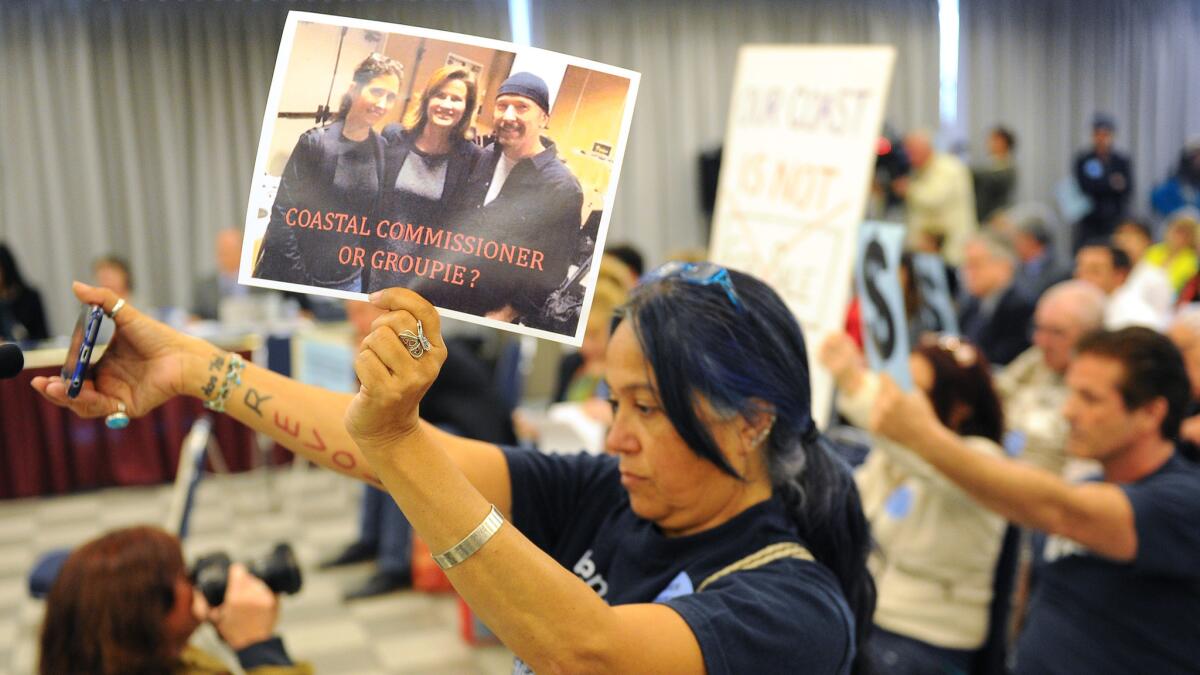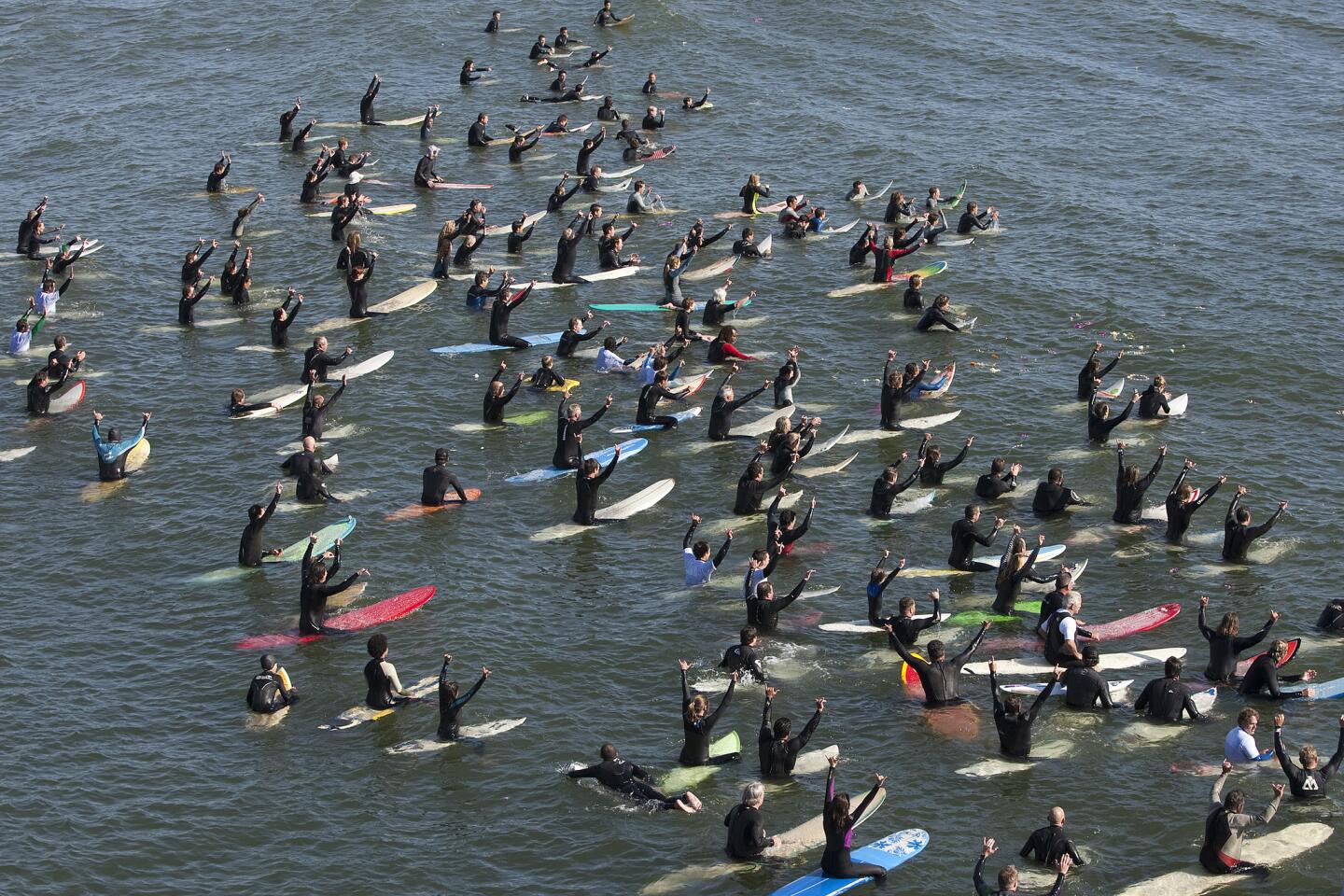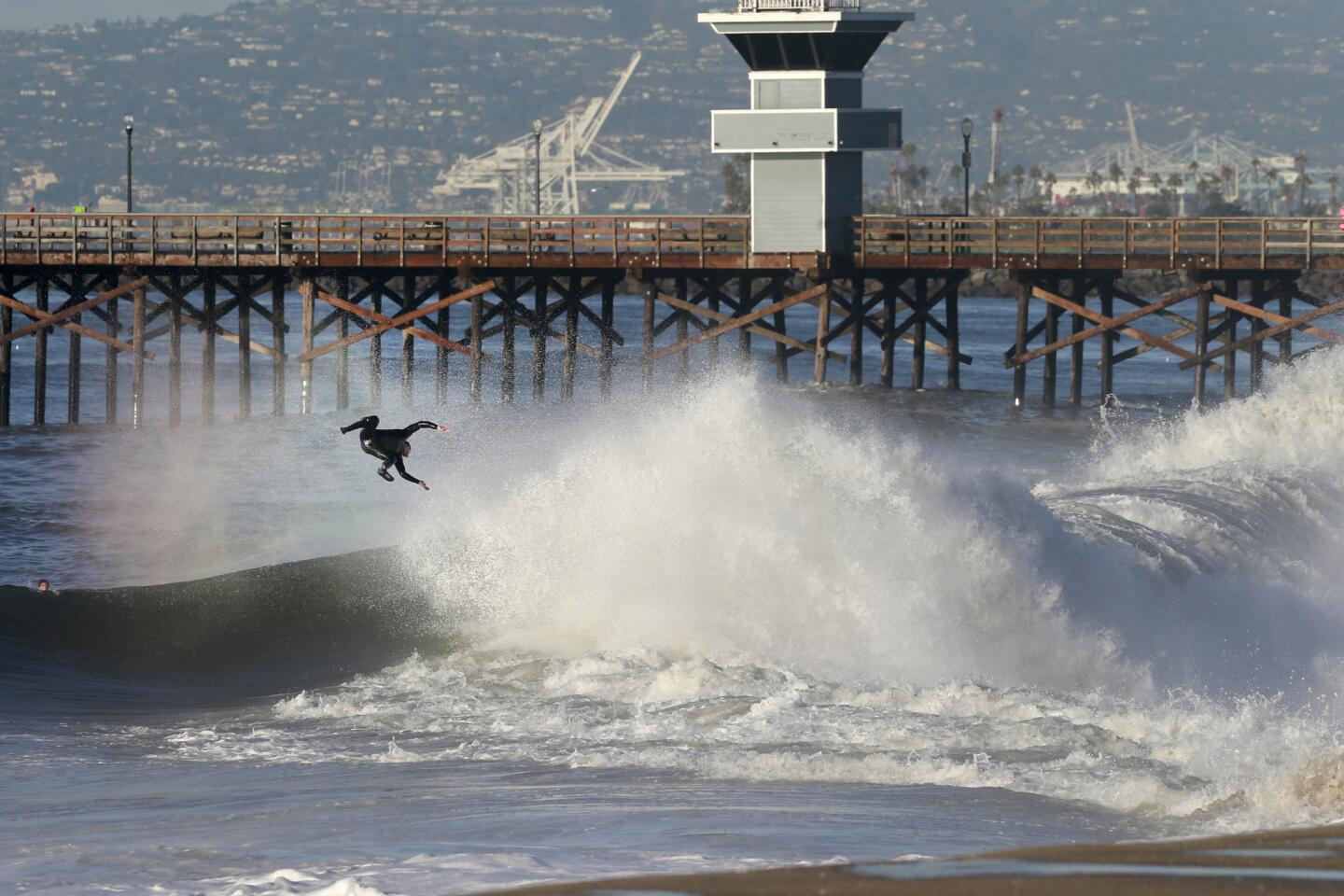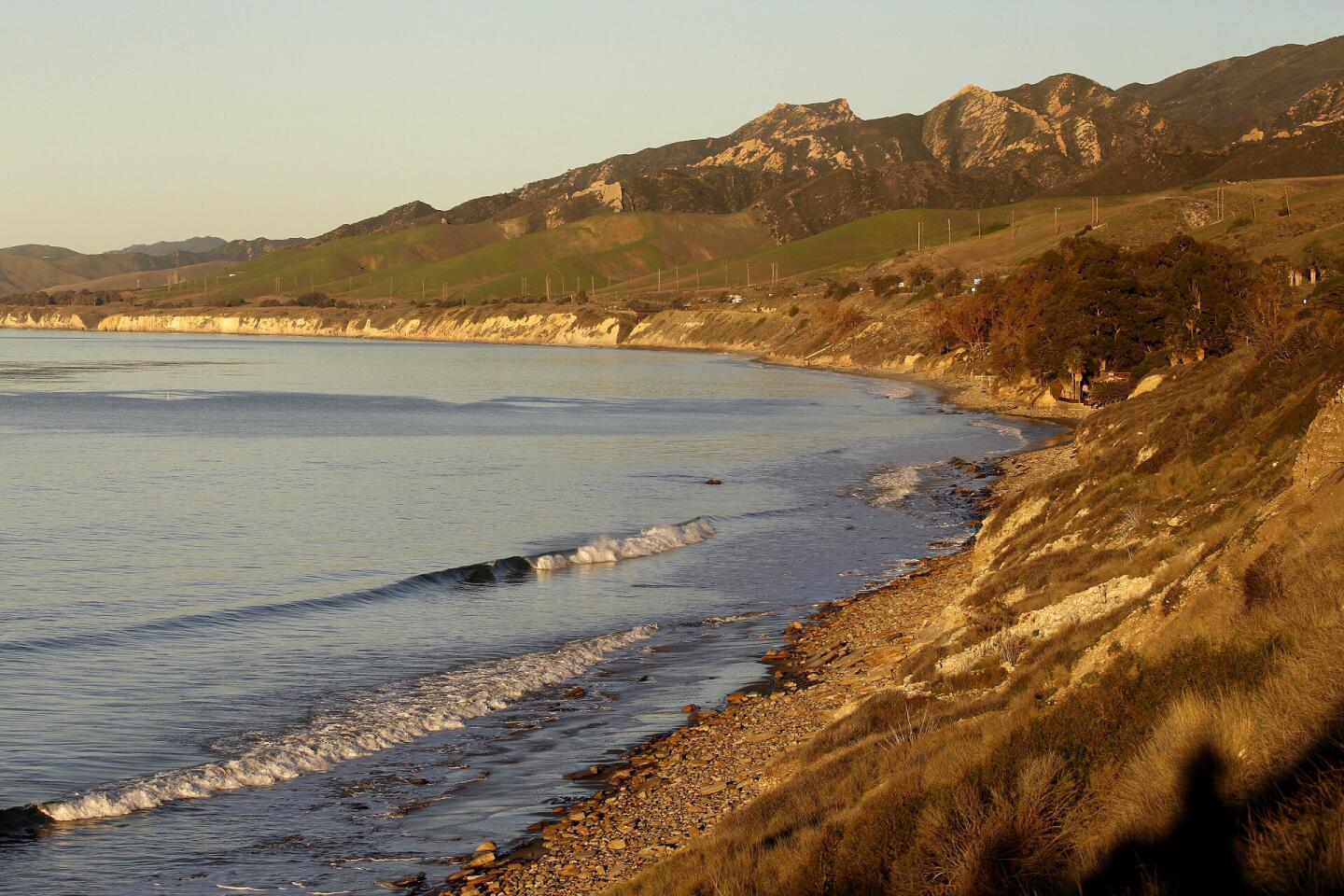Will Sacramento lawmakers restore trust in the Coastal Commission?

- Share via
About six years ago, on a fabulously sunny day in Malibu, it became abundantly clear how in the dark I was about coastal development in California.
I stood on the ridge where U2 guitarist David Evans and friends wanted to erect five homes the size of airport terminals, and I was listening to Evans’ high-priced team argue in favor of fouling the natural habitat. To my surprise, a representative of the consulting firm hired by Evans told me his outfit had been arguing their case in meetings with members of the California Coastal Commission.
Wait a minute, I thought.
Is that legal?
It didn’t seem fair to me that an applicant — a fabulously rich one, in this instance — could privately lobby decision-makers on a pending project. How was that different from a criminal or civil trial in which one side or another was meeting privately with a judge during an ongoing trial?
Actually, such meetings — referred to as ex parte communications — are entirely legal and par for the course at the powerful Coastal Commission, whose duty is to protect California’s greatest natural resource for you, me and the rest of the world.
That’s how business is done; how it has been done for decades.
And it’s one reason, among many, the current commission has squandered public trust from Crescent City to the Tijuana Sloughs.
But a big can of disinfectant has been moved into position by state Sen. Hannah-Beth Jackson (D-Santa Barbara). Her reform bill has already flown through the Senate and into the Assembly, and if it keeps sailing along and gets the support of Gov. Jerry Brown, most private meetings with commissioners will be banned.
“The ex parte process has been corrupted,” Jackson told me by phone Tuesday afternoon from the floor of the Senate, pausing for a minute to cast a vote on another bill.
“There’s a lot of money to be made along the coast,” Jackson said. She added that the ex parte system gives “undue influence” to certain interests, particularly “those with financial resources” that allow them to hire consultants who do their bidding and are on a first-name basis with commissioners.
“These discussions should not take place in private. That’s the whole point — that these are secret meetings, and you don’t meet in secret with an adjudicatory body that’s supposed to be impartial.”
There’s a lot of money to be made along the coast.
— Sen. Hannah-Beth Jackson (D-Santa Barbara), author of reform bill
This is but one call for more Coastal Commission transparency. Another bill in play would require the hired guns who work for developers, businesses or other parties to register as lobbyists. As it is, they’re classified as agents and don’t have to provide full disclosure as to who’s paying them, how much they make and who they talk to.
“This is about transparency,” said Assemblywoman Toni Atkins (D-San Diego), one of the authors. “The public should have a way to get access to this information.”
Atkins told me she thinks her bill, coupled with the ban on ex partes, would make the commission more accountable and better equipped to serve the public interest above all other interests.
As for the ex partes, the idea behind that system was admirable; it was supposed to clean up the commission’s notoriously shady business dealings. The thinking was that it would be a way for all parties for and against a proposed hotel, or power plant, or residential development to weigh in with commissioners.
Commissioners were required to file ex parte reports with a comprehensive account of what was said in those meetings, and those reports were to be made public.
But when Coastal Commissioner Mark Vargas met with Evans last year in Ireland, at a U2 concert, his ex parte report was a two-sentence account of what was discussed. Just weeks later, he and other commissioners voted unanimously to approve the Malibu project.
To add to the lack of accountability, Vargas ignored my questions about that meeting with Evans for days. I left messages and even confronted him at a hearing. He brushed me off before finally offering a tad more elaboration on his Irish confab with the U2 guitarist.
Get rid of the private meetings, and you get rid of suspicion.
As my Times colleagues have detailed, the ex parte reports are sometimes written by the agents rather than the commissioners.
Do I need to say another word?
Most ex partes are with the business/development lobby rather than environmental or other groups. And as the Times reported, commission Chairman Steve Kinsey met twice in the last several months with backers of a mammoth Newport Beach development proposal, but he did not file ex parte reports.
We actually owe a debt of thanks to the commissioners. They made such a mess of things, even they voted to support the ban on ex partes, as well as the bill requiring agents to register as lobbyists.
There is opposition to the bills, as laid out in letters sent to legislators.
The U.S. Navy would like an exemption from the ex parte ban, arguing that its projects are “critical to our evolving military mission” and full communication with commissioners is vital.
Labor groups want to make sure they can argue in favor of projects that create jobs.
Chambers of commerce want to make sure they can bend the ears of commissioners on land use projects in the coastal zone.
In other words, almost everyone thinks they’re special in some way— so special that the people of California don’t have a right to hear what they have to say to the commission that is supposed to protect the public’s interests.
But here’s the deal: All interested parties, on any project, can explain themselves, on the record, in public, at the agency’s monthly meetings. And at any time before and after those meetings interested parties would still be able to make their pitch in written communication with commissioners, if they send copies to the commission staff — which would provide another layer of accountability and transparency.
Given all the powerful forces in play and the billions of dollars worth of projects in the pipeline, neither piece of legislation is certain to pass.
The system, as it is, works very well for certain people.
And then there’s Gov. Brown.
How can a man who seems extremely proud of his environmental record have nothing to say, as I’ve reported, about the management of the state’s most iconic natural resource — even though four commissioners serve at his pleasure?
So I encourage you all to keep Tweeting @JerryBrownGov with the hashtag #Saveyourcoast to remind him that California’s 1,100 miles of incomparable coastline grows a little more precious every day as the world’s population expands and beautiful places worldwide get bulldozed.
California’s taxpayers need for their Coastal Commission to be open and fair. As Jana Zimmer, a former Coastal Commissioner told me: “If you’re told something in private, that sets a thought in your mind and you begin to develop a bias going into the hearing.”
And as she wrote to Sen. Jackson in support of her bill: “...The problem with ex parte meetings … is that information is conveyed to commissioners in private, which, inevitably is not fully disclosed in public, or not disclosed in a timely or meaningful way that would allow for rebuttal.’’
No rebuttal from me on that.
MORE FROM STEVE LOPEZ:
‘Did you call 911?’ Here’s how one man reached out to his rescuers
Earnest UC Irvine student seeks to shake up the Republican Party
Tired of homelessness? Here are some opportunities to take action
More to Read
Sign up for Essential California
The most important California stories and recommendations in your inbox every morning.
You may occasionally receive promotional content from the Los Angeles Times.
























